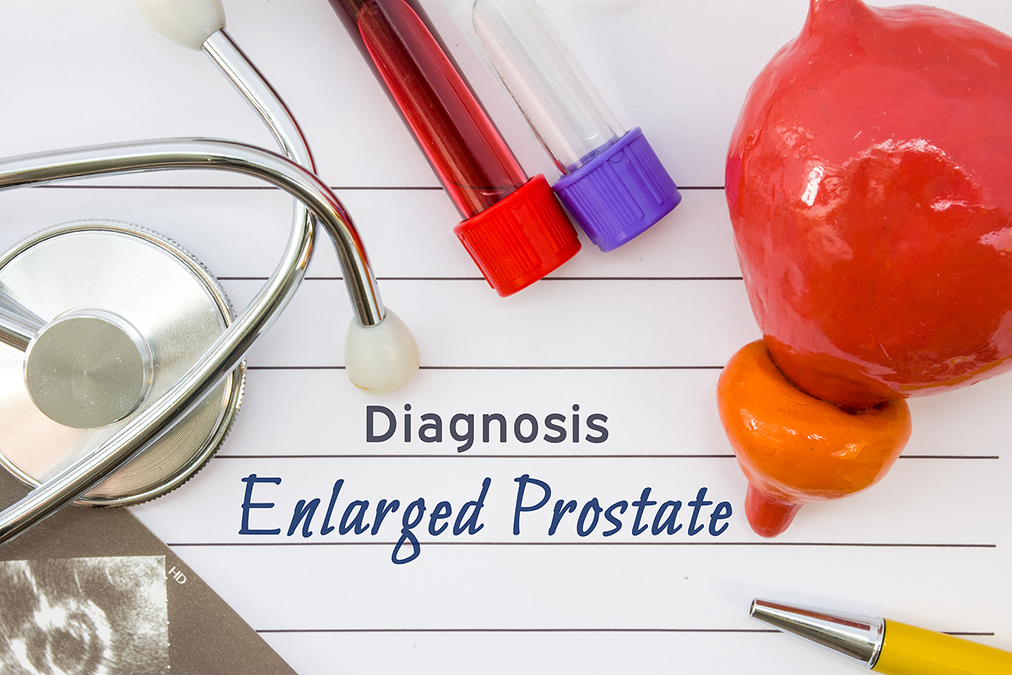 Enlarged prostates constitute a widely misunderstood condition.
Enlarged prostates constitute a widely misunderstood condition.
For example, nighttime urination is considered to be one of its worst symptoms. While that is definitely irritating and tiring, it is not the worst symptom of an enlarged prostate, according to a new study published in the Journal of Qualitative Health Research.
No, the worst symptom is one nobody who doesn’t suffer from an enlarged prostate would guess.
The researchers behind the study recruited 20 men with an enlarged prostate from urology outpatient clinics in southern England. They were all between 52 and 75 years of age and were all in relationships.
Since the symptoms of an enlarged prostate are already fairly well understood, they interviewed their subjects to obtain information about their quality of life and their treatment decisions.
The first insight revealed in the interviews was that an enlarged prostate is not just a urinary and sexual problem, as it is often perceived.
The men complained that it poses massive social, psychological, and practical problems that are even more distressing than the physical symptoms. For example, they often need to plan events in ways that consider their enlarged prostate. They need to monitor and adjust fluid intake depending on trip duration. Some even reported needing to cancel activities entirely or change them to locations with more reliable toilet access.
One participant described having gone on three-hour boat trips during which he could not consume any liquids. Another man expressed constantly needing to plan instead of just being able to live. Another reported keeping a container in his vehicle to prevent accidents in the event of limited toilet access.
They reported suffering from anxiety during everyday activities, constantly worried about being able to make it to the bathroom on time. Making matters worse, this anxiety often makes it difficult for them to prevent involuntary urine leaking.
Nocturia (the medical term for nighttime urination) prompts some of the men to refrain from family visits and causes almost all of them to suffer from sleep deprivation, affected their work and limiting their control over their own moods and emotions.
Having an enlarged prostate also takes a toll on their relationships. Their inability to have an erection causes their wives to worry about whether their husbands still find them physically attractive or about whether their husbands are having affairs.
Many of the men complained about embarrassment, shame, and a loss of self-esteem, especially those who suffer from incontinence and those who are often unable to pursue normal, everyday activities.
Most of the men expressed that they initially ignored the symptoms of their enlarged prostate until they became intolerable, as they did not want to put up with the side effects of medication or, even worse, deal with surgery and the potential for post-surgical sexual dysfunction.
In fact, the potential for sexual dysfunction was the main reason why most of them have refused treatment. Other factors behind their treatment choices are their ability to continue to work, the success of various treatment options, and the potential for irreversible side effects.
As terrible as this condition is, it only gets worse if it is not addressed as soon as symptoms emerge. If the growth of the prostate can be slowed or stopped in the early stages, the symptoms won’t ever develop to the extent that the participants in this study described.

 Overcoming IBD
Overcoming IBD Multiple Sclerosis
Multiple Sclerosis Banishing Bronchitis
Banishing Bronchitis Gum Disease Gone
Gum Disease Gone Overcoming Onychomycosis
Overcoming Onychomycosis Neuropathy No More
Neuropathy No More The Prostate Protocol
The Prostate Protocol Brain Booster
Brain Booster
 Ironbound
Ironbound
 Solution for Shingles
Solution for Shingles
 The Bone Density Solution
The Bone Density Solution
 The Ultimate Healing Protocol
The Ultimate Healing Protocol
 The Parkinson's Protocol
The Parkinson's Protocol
 The Chronic Kidney Disease Solution
The Chronic Kidney Disease Solution
 Overthrowing Anxiety
Overthrowing Anxiety The Fatty Liver Solution
The Fatty Liver Solution The Hypothyroidism Solution
The Hypothyroidism Solution
 The End of Gout
The End of Gout The Blood Pressure Program
The Blood Pressure Program
 The Oxigized Cholesterol Strategy
The Oxigized Cholesterol Strategy
 Stop Snoring And Sleep Apnea Program
Stop Snoring And Sleep Apnea Program
 The Arthritis Strategy
The Arthritis Strategy The Vertigo & Dizziness Program
The Vertigo & Dizziness Program The 3-Step Diabetes Strategy
The 3-Step Diabetes Strategy Hemorrhoids Healing Protocol
Hemorrhoids Healing Protocol The Erectile Dysfunction Master
The Erectile Dysfunction Master Weight Loss Breeze
Weight Loss Breeze The IBS Program
The IBS Program The Insomnia Program
The Insomnia Program The Migraine and Headache Program
The Migraine and Headache Program The Neck Pain Solution
The Neck Pain Solution The Menopause Solution
The Menopause Solution The Ejaculation Master
The Ejaculation Master The TMJ Solution
The TMJ Solution The Acid Reflux Solution
The Acid Reflux Solution The Fibromyalgia Solution
The Fibromyalgia Solution The Psoriasis Strategy
The Psoriasis Strategy